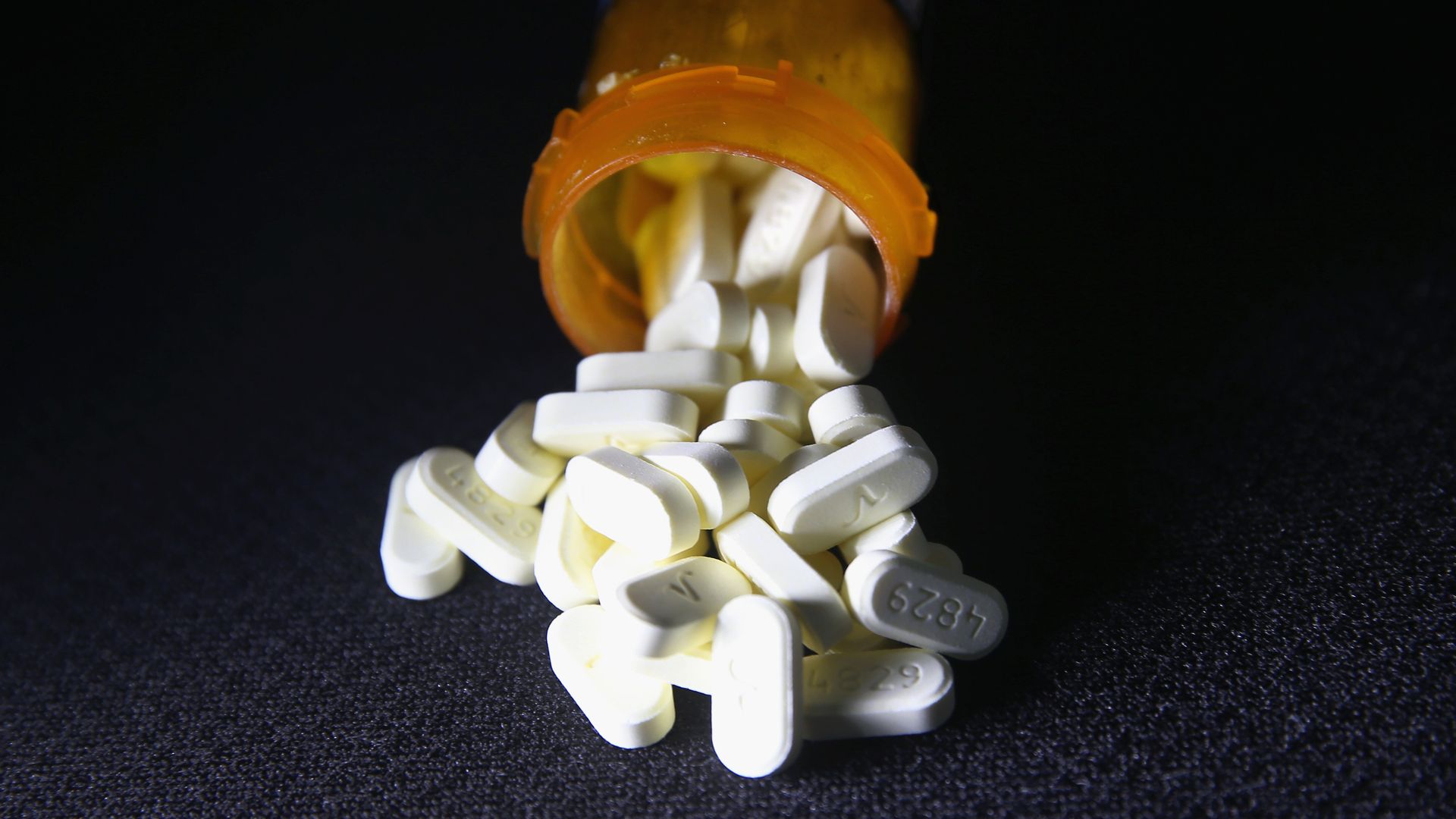Apr 24, 2019 - Health
Rochester Drug Cooperative hit with first criminal opioid-related charges
Add Axios as your preferred source to
see more of our stories on Google.

Oxycodone pain pills. Photo: John Moore/Getty Images
Add Axios as your preferred source to
see more of our stories on Google.

Oxycodone pain pills. Photo: John Moore/Getty Images